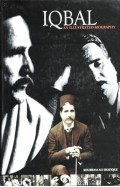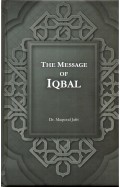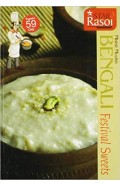THE PHILOSOPHY OF IQBAL
By: Dr.Muhammad rafi ud Din
-
Rs 1,080.00
- Rs 1,200.00
- 10%
You save Rs 120.00.
Due to constant currency fluctuation, prices are subject to change with or without notice.
This English translation of Dr. Mohammad Rafiuddin's Hikmat-e-Iqbal is a welcome addition to the growing field of Iqbal studies. Critics of Iqbal who found his thought unscientific, unsystematic, and apologetic prompted Dr. Rafiuddin to write Hikmat-e-Iqbal as a rejoinder to this critique. He suggested three principles to judge Iqbal's contribution. First, to evaluate if a contribution is systematic one must analyze Iqbal's arguments, not selected extracts and poetry, Second, one must not evaluate Iqbal's philosophy on the basis of the philosophical thought whose weakness he exposed. His contribution needs to be analyzed within Iqbal's own context. Third, one must critically appreciate Iqbal's critique of his contemporary thinkers, not simply to find contradictions, but to judge whether his critique was scientifically sound and consistent.
Iqbal's philosophical thought is not found in one book or poem; it permeates in his prose and poetry throughout. It needs to be studied comprehensively and collectively. According to Dr. Rafiuddin, the core concept in Iqbal's philosophy is Khurdi, or 'Autonomy of the Self', developed in two larger contexts: his contemporary philosophical thought related to Self and modernity, and the Islamic philosophical context. Dr. Rafiuddin wrote the Hikmat-e-Iqbal as an introduction to Iqbal's philosophy. It is an introduction - but by a student of philosophy who had studied Iqbal extensively, benefited from his wisdom passionately, and written on his thought comprehensively.
Three contemporary trends cried for its English translation. First is the trend of appropriating Iqbal to the reader's own ideology: modernists, liberals, and Islamists have all sculpted him to their own images. Second it the trend of disassociation with Iqbal: puritan secularists, nationalists, and Marxists find it hard to accept Iqbal. The third is the trend of worshippers of orthodox Urdu communities who often find his unorthodox diction and theology unforgivable Iqbal responded to the challenges of modernity, scientism, secularism, orthodoxy, and Marxism as he faced them in his everyday life.
These challenges survive in various stages of the social process of evolution. This English translation of Hikmat-q-Iqbal by Dr. Salahuddin Mahmud, it is hoped, will greatly help young researchers who wish to study Iqbal without any props.
This English translation of Dr. Mohammad Rafiuddin's Hikmat-e-Iqbal is a welcome addition to the growing field of Iqbal studies. Critics of Iqbal who found his thought unscientific, unsystematic, and apologetic prompted Dr. Rafiuddin to write Hikmat-e-Iqbal as a rejoinder to this critique. He suggested three principles to judge Iqbal's contribution. First, to evaluate if a contribution is systematic one must analyze Iqbal's arguments, not selected extracts and poetry, Second, one must not evaluate Iqbal's philosophy on the basis of the philosophical thought whose weakness he exposed. His contribution needs to be analyzed within Iqbal's own context. Third, one must critically appreciate Iqbal's critique of his contemporary thinkers, not simply to find contradictions, but to judge whether his critique was scientifically sound and consistent.
Iqbal's philosophical thought is not found in one book or poem; it permeates in his prose and poetry throughout. It needs to be studied comprehensively and collectively. According to Dr. Rafiuddin, the core concept in Iqbal's philosophy is Khurdi, or 'Autonomy of the Self', developed in two larger contexts: his contemporary philosophical thought related to Self and modernity, and the Islamic philosophical context. Dr. Rafiuddin wrote the Hikmat-e-Iqbal as an introduction to Iqbal's philosophy. It is an introduction - but by a student of philosophy who had studied Iqbal extensively, benefited from his wisdom passionately, and written on his thought comprehensively.
Three contemporary trends cried for its English translation. First is the trend of appropriating Iqbal to the reader's own ideology: modernists, liberals, and Islamists have all sculpted him to their own images. Second it the trend of disassociation with Iqbal: puritan secularists, nationalists, and Marxists find it hard to accept Iqbal. The third is the trend of worshippers of orthodox Urdu communities who often find his unorthodox diction and theology unforgivable Iqbal responded to the challenges of modernity, scientism, secularism, orthodoxy, and Marxism as he faced them in his everyday life.
These challenges survive in various stages of the social process of evolution. This English translation of Hikmat-q-Iqbal by Dr. Salahuddin Mahmud, it is hoped, will greatly help young researchers who wish to study Iqbal without any props.
Zubin Mehta: A Musical Journey (An Authorized Biography)
By: VOID - Bakhtiar K. Dadabhoy
Rs 892.50 Rs 1,050.00 Ex Tax :Rs 892.50
The Use Of Metaphors In Iqbals Urdu Poetry
By: Dr.Sardar Fayyaz ul Hassan
Rs 630.00 Rs 700.00 Ex Tax :Rs 630.00
The Origins of Political Order From Prehuman Times to the French RevolutioN
By: Francis Fukuyama
Rs 4,045.50 Rs 4,495.00 Ex Tax :Rs 4,045.50
Manning Up: How the Rise of Women Has Turned Men into Boys
By: Kay Hymowitz
Rs 845.75 Rs 995.00 Ex Tax :Rs 845.75
The Obama Syndrome: Surrender At Home War Abroad
By: Tariq Ali
Rs 1,100.75 Rs 1,295.00 Ex Tax :Rs 1,100.75
The Quest For Meaning: Developing A Philosophy Of Pluralism
By: Tariq Ramadan
Rs 1,185.75 Rs 1,395.00 Ex Tax :Rs 1,185.75
The Use Of Metaphors In Iqbals Urdu Poetry
By: Dr.Sardar Fayyaz ul Hassan
Rs 630.00 Rs 700.00 Ex Tax :Rs 630.00
No recently viewed books available at the moment.
Zubin Mehta: A Musical Journey (An Authorized Biography)
By: VOID - Bakhtiar K. Dadabhoy
Rs 892.50 Rs 1,050.00 Ex Tax :Rs 892.50
The Use Of Metaphors In Iqbals Urdu Poetry
By: Dr.Sardar Fayyaz ul Hassan
Rs 630.00 Rs 700.00 Ex Tax :Rs 630.00














-120x187.jpg?q6)









-120x187.jpg?q6)







